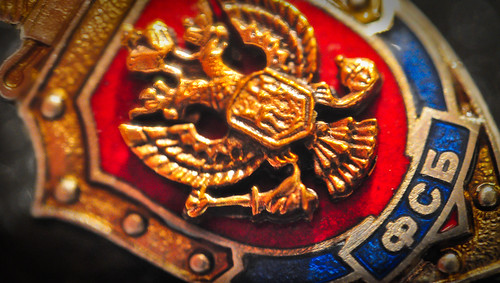
Russian lawmakers approved new legislation concerning the definition of treason, which has many NGOs worried about its impact. The amendment was passed by the Duma (the lower house of parliament) in a vote of 375 out of 450 this past Tuesday. Although President Vladimir Putin must officially sign it, this new definition of treason would make any contact with a foreigner potential grounds for criminal charges.
Under the previous law, only if you had access to state secrets could you be potentially prosecuted. If Putin signs this law into effect, anyone who accidentally comes across a state secret could be prosecuted, even if it is by hearsay means. Additionally, it expands the scope of treason by making it a crime not only to possess state secrets but also to have any part in receiving them, transmitting them, or publishing them.
The law criminalizes aiding foreign states as well as foreign organizations. Anyone found to have undermined Russia’s “constitutional system, sovereignty, [or] territorial and state integrity” will be subject to punishment. The head of the Federal Security Service pushed for the law, stating that it will help uncover international organizations that are used as spies in the country. Many fear that the Federal Security Service will be a driving force in cracking down on this oppressive law. As the successor to the KGB, it leaves many international organizations worried.
Catherine Ashton, the European Union’s Foreign Policy Chief, stated that: “The new law would expand the scope for prosecution and reduce the burden of proof for charges of treason and espionage.” Additionally, Ashton commented that the recent legislation in Russia: “would limit the space for civil society development, and increase the scope for intimidation.”
How do you think the new legislation in Russia will be applied? Should the United States, as a member of many international organizations, be concerned? How would we, or any NGO, combat such legislation? Do you think it is the start of a renewed “Kremlin crackdown”?
Sources: The Independent, Radio Free Europe: Radio Liberty, The Rise of Russia Blogspot
I think this law is another tell tail sign that Russia is attempting to go back to the ways of its Soviet past. The law is likely to arouse fear in the Russian people. By making the requirements to be found guilty of treason more lax, more and more people will be worried about breaking this law. It is easier to control people when fear is rampant among them. When everyone is fearful of one another they cannot unite against oppression. This law can be viewed as attempting to spread fear among the Russian people so that they are not able to come together and put a stop to this new oppressive law. Russia, led by Prime Minister Putin, is slowly slipping back to the totalitarian ways of the Soviet Union. This new law is just another example of this. It is time for the United States, and other nations as well, to start thinking about how to quell the seeds of totalitarianism in Russia.
My guess would be that this legislation will not necessarily be used as a means of widespread prosecution, but may be used as an excuse or a means to begin investigations of certain organizations. The Federal Security Services claims that it needs the law to investigate operations that are covers for “spies,” and this may very well be true. But given Russia’s history in responding to dissenting opinions (two Pussy Riot members were just sent to “corrective labor camps” this past week), this may be an intimidation tactic, as the European Union’s Foreign Policy Chief suggested, to quash dissent before it happens. I do not think that the U.S., as a member of international organizations, has any reason to be concerned about this law. However, U.S. NGO’s perhaps should be concerned, as foreign NGO’s seem to be a target of the law. Whether this turns out to be a new “Kremlin crackdown,” only time will tell.
It looks like the law is going to be enacted as Russia’s upper house of parliament approved the new draft law on treason. Now it will be put in the hands of President Vladimir Putin and he is expected to sign it.
The new bill expands treason to include acts against Russia’s “constitutional order, sovereignty and territorial and state integrity.” The new legislation also applies to international organizations as well as foreign states.
Human Rights Watch and European Union foreign policy chief Catherine Ashton protested and expressed concern when the draft law passed the lower house.
Russia stated that the new law is meant to strengthen security but many rightfully feel that it is meant to silence the voice of the people.
According to an article in the Voice of America, a series of other Russian laws have been passed this year restricting civic freedoms and foreign influence and include laws that criminalize slander, blacklist websites containing objectionable material, and laws that tighten restrictions on nongovernmental groups with foreign funding, and curb public protests have been passed.
Supporters of the new laws say “the measures are meant to protect young people from child pornography and information about suicide and drug use, and to keep the public safe.”
Critics say “the new legislation is designed to suppress information and stifle dissent.”
I believe the critics.